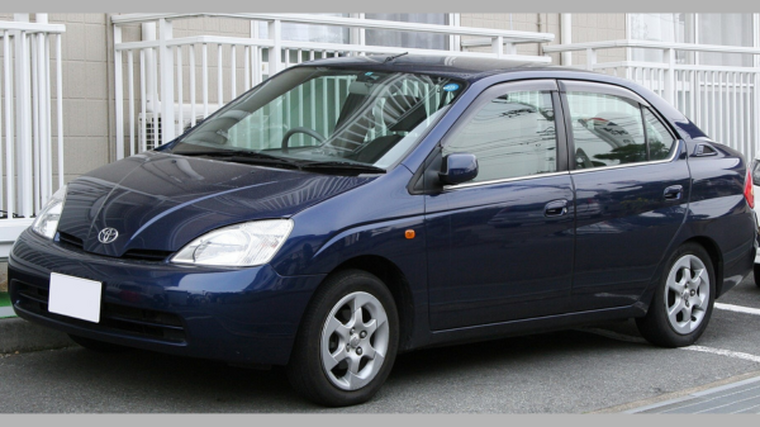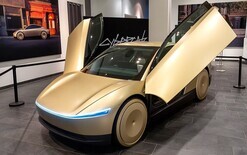Marque hits hybrid milestone

Toyota New Zealand has reached a major sustainability milestone, with more than 100,000 new hybrids now sold across the country.
The milestone reflects more than two decades of investment in low-emissions technology since the Prius first launched here in 2003. Pictured above is the first-gen model – the NHW11. Now the company is introducing the sixth generation of that model.
Today, hybrids make up 95 per cent of Toyota’s passenger vehicle sales with the popular RAV4 Hybrid leading the charge as the country’s top-selling passenger vehicle in 2025 with 5,184 units sold year to date.
Susanne Hardy, assistant vice-president of marketing, sustainability and technology, says the 100,000 mark is a significant achievement on the company’s journey toward a lower-carbon future.
“This milestone reflects the commitment of New Zealand drivers to reducing emissions and the growing appeal of practical, affordable hybrid vehicles,” she adds.
“It’s a critical step toward our goal of reducing our CO2 emissions by 46 per cent by 2030, and achieving carbon neutrality by 2050 across our operations and fleet.”
The sale of 100,000 hybrid vehicles represents a saving of 120,000tCO2 per year, the equivalent of adding 33,000 battery electric vehicles (BEVs) to our road fleet.
Hardy believes the increase in popularity of hybrids corresponds to an increase in performance and economy from Toyota’s hybrid powertrains.
“Our hybrid vehicles continue to get better, with greater efficiency without sacrificing performance. The sale of our 100,000th hybrid is a significant milestone. But it’s also just the beginning for us as we work towards a net-zero carbon future for our business.
“Toyota is moving towards being a mobility company for all, therefore how we reach the net-zero ambition is key. We want to protect the planet we have.
“It is our responsibility to reduce greenhouse gas emissions from all products we sell and how we sell them. Through our latest Let’s Go Places campaign, it’s clear to all that this is a key priority for us as a company.”
Toyota NZ is also investing in battery recycling, extending the lifespan of vehicles through reuse initiatives and will continue to grow its range of BEVs.
“We’re taking a full-lifecycle approach to sustainability, from how we source and ship our vehicles, to how we power, service and eventually recycle them,” says Susanne Hardy. “It’s about catering to the diverse needs of customers and communities while simultaneously reducing our environmental impact, now and into the future.”
As part of its wider sustainability strategy, Toyota NZ is also rethinking how vehicles are delivered, with its first-ever direct import of vehicles into Port Nelson completed in June as part of a pilot to improve the sustainability and efficiency of its national supply chain.
Two vehicles, a RAV4 and Camry, arrived in Nelson as part of a pilot initiative to test systems and processes for direct imports into the South Island port.
These vehicles were delivered to Bowater Toyota in Nelson, providing valuable insight into how Toyota can better serve customers in the top of the South Island while reducing environmental impact.
Andrew Davis, chief strategic officer at Toyota NZ, says: “This is about improving our customer service by driving smarter logistics and lowering our CO2 footprint.
“By importing vehicles directly into Nelson rather than trucking them from Lyttelton, we’re increasing our supply-chain efficiency by reducing handling, saving time for delivery to customers and cutting our carbon emissions. It's a small first step, but it’s part of our ongoing strategy to make our operations more sustainable.”
Toyota data suggests the company could potentially reduce the emissions in the South Island supply chain by 14 per cent by directly landing pre-sold vehicles for customers of Bowater Toyota in Nelson and Blenheim Toyota in Blenheim.
The marque believes that figure could grow to up to 1,000 units annually via coastal shipping rather than road freight.
Tony Bowater, chief executive officer of Bowater Toyota, says the initiative makes sense for the region.
“Nelson is a busy and growing region, and we’re proud to be part of a pilot that brings environmental and operational benefits,” he adds. “Direct shipping gives us a smarter way to get vehicles into the hands of our customers faster, with fewer emissions. It’s a win-win.”
The direct-shipment model gives Toyota flexibility to import vehicles made overseas directly to Nelson, or by landing them first in Auckland then transferring them to Nelson by sea using coastal shipping rather than road freight.
Toyota will assess the results of the pilot before considering whether to expand the programme to include more vehicles and a broader range of local destinations.





